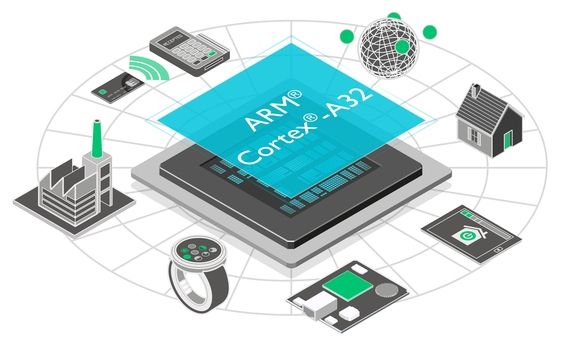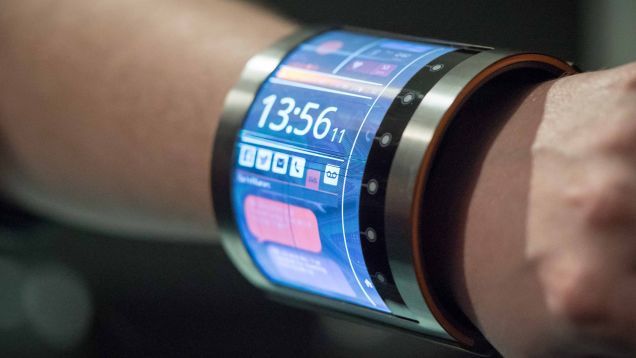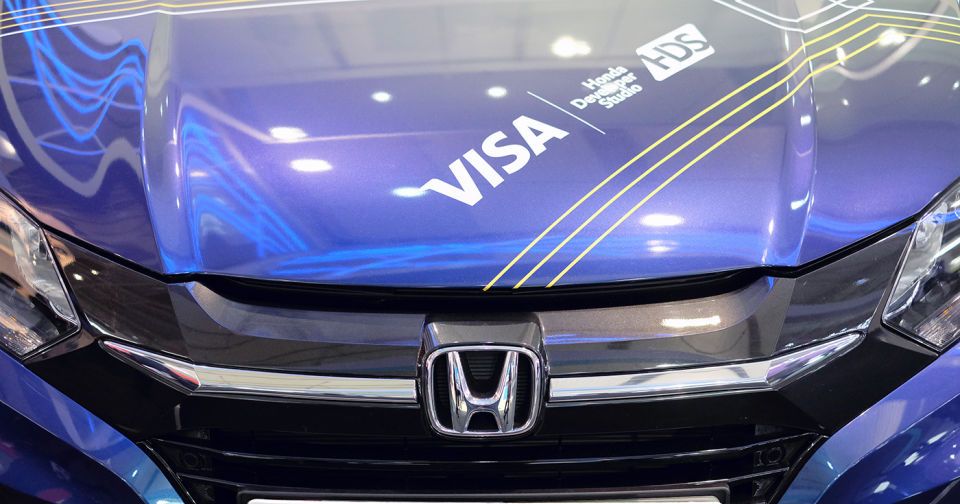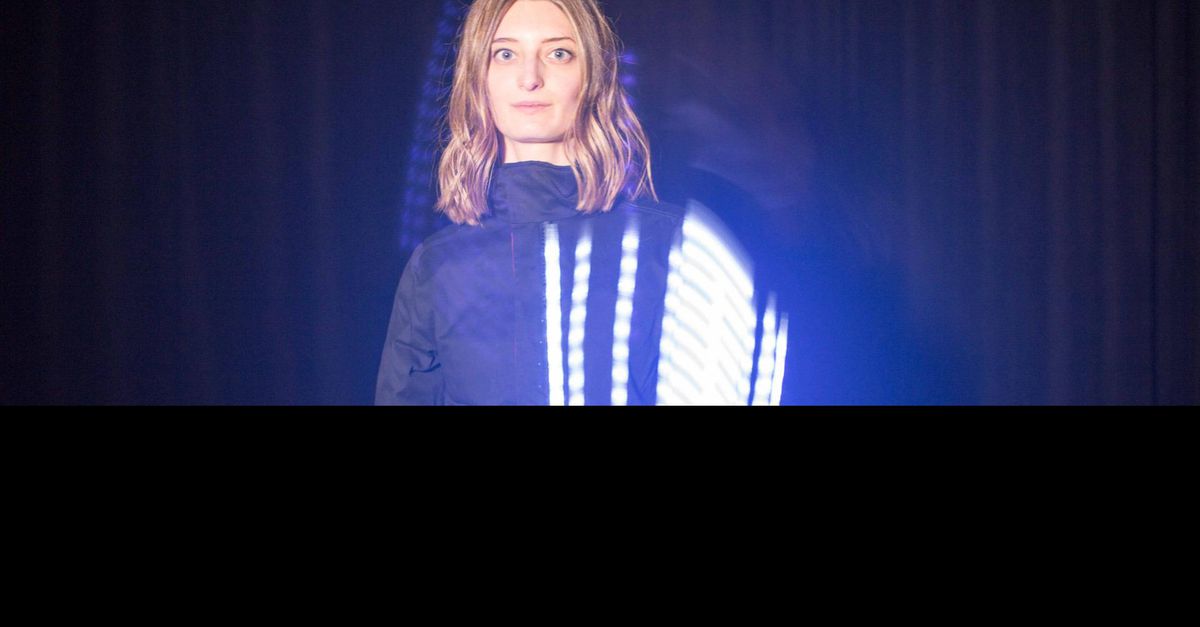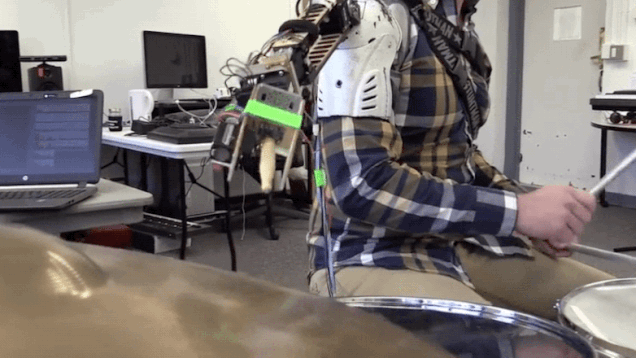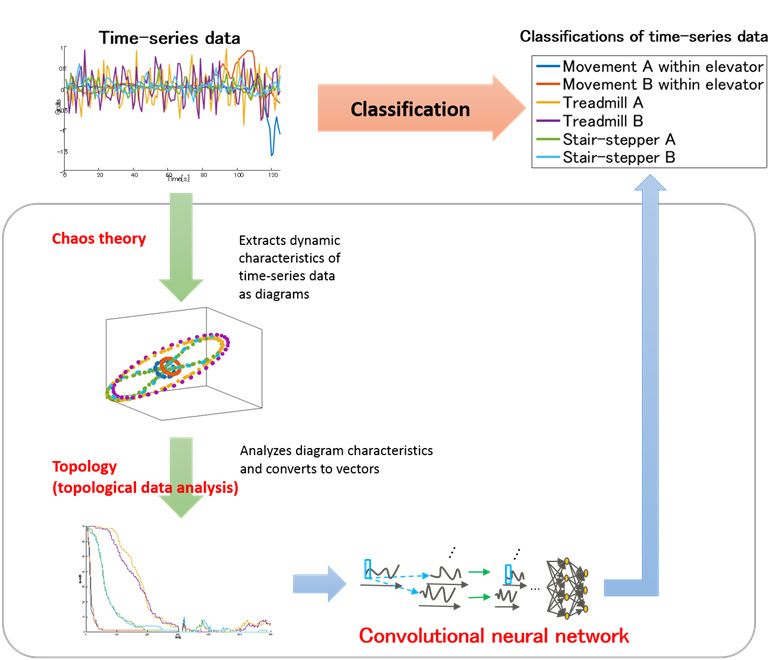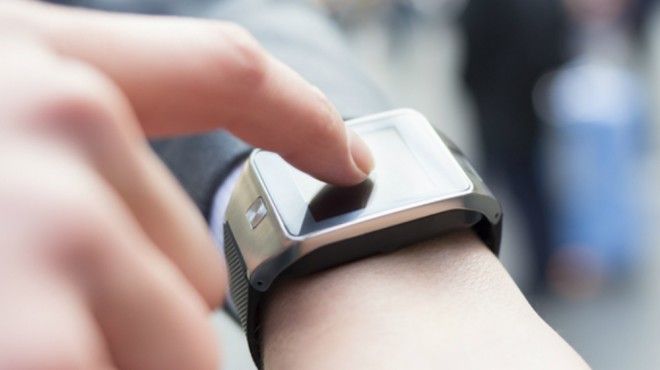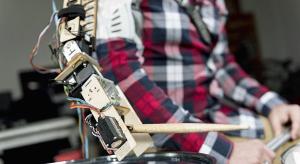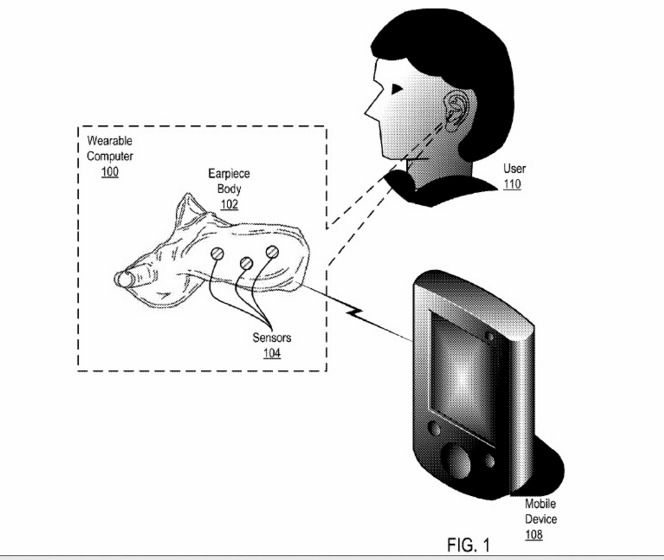Archive for the ‘wearables’ category: Page 68
Feb 22, 2016
This 4.7-Inch Organic LCD Wraps Right Around Your Wrist
Posted by Sean Brazell in categories: electronics, wearables
Your smartwatch screen may soon be rather more impressive: This 4.7-inch organic LCD display is flexible enough to wrap right around a wrist.
Produced by FlexEnable from the UK, the screen squeezes a full-color organic LCD onto a sheet that measures just one hundredth of an inch thick, which makes it highly conformable. The company claims that it can easily run vivid colour and smooth video content, which is a sight better than most wearables.
It’s not the first flexible display, of course. LG already has an 18-inch OLED panel that has enough flexibility to roll into a tube that’s an inch across. But this concept—which, sadly, is all it is right now—is the first large, conformable OLCD designed for wearables that we’ve seen.
Continue reading “This 4.7-Inch Organic LCD Wraps Right Around Your Wrist” »
Feb 22, 2016
Visa thinks your car should pay for its own fuel
Posted by Shailesh Prasad in categories: energy, internet, robotics/AI, transportation, wearables
The jury may still be out on the usefulness of the Internet of Things, but payments giant Visa is 100 percent sure that it doesn’t want to miss out. Today, it announced plans to push Visa payments into numerous fields. We’re talking “wearables, automobiles, appliances, public transportation services, clothing, and almost any other connected device” — basically anything that can or will soon connect to the internet.
Visa imagines a future where you’ll be able to pay for parking from your car dashboard or order a grocery delivery from your fridge. It makes sense, then, that Samsung is one of the first companies to sign up to the Visa Ready Program, alongside Accenture, universal payment card company Coin and Fit Pay. Chronos and Pebble are also working to integrate secure payments inside their devices.
To show off the technology, which works with any credit card, Visa or otherwise, the company has teamed up with Honda to develop an in-car app that helps automate payments. Right now they have two demos, the first of which concerns refueling. It warns the driver when their fuel level is low and directs them to the nearest gas station. Once the car arrives at the pump, the app calculates the expected cost and allows the driver to pay for the fuel without having to leave the vehicle.
Feb 21, 2016
What I learned from my entire outfit of wearable tech
Posted by Karen Hurst in category: wearables
For now, wearable tech clothing seems to be effective for only outdoor/sports wear and occupational wear; I believe that more needs to be done in working with design houses such as Marc Jacobs, Versace, Dior, etc. What I have learned is the major design houses are not totally bought into wearable tech cloth; and tech will need to understand how to make the fabric technology more attractive to the name brand design houses especially if wearable tech clothing wishes to obtain a larger adoption of wearable tech clothing.
“If anyone could pull it off, it would be you” is not the most affirmative compliment.
Feb 19, 2016
Three-Armed Cyborg Drummer Is the Killer Beat Machine of the Future
Posted by Sean Brazell in categories: cyborgs, media & arts, robotics/AI, wearables
Seeking to “push the limits of what humans can do,” researchers at Georgia Tech have developed a wearable robotic limb that transforms drummers into three-armed cyborgs.
The remarkable thing about this wearable arm, developed at GT’s Center for Music Technology, is that it’s doing a lot more than just mirroring the movements of the drummer. It’s a “smart arm” that’s actually responding to the music, and performing in a way that compliments what the human player is doing.
The two-foot long arm monitors the music in the room, so it can improvise based on the beat and rhythm. If the drummer is playing slowly, for example, the arm will mirror the tempo.
Feb 19, 2016
Fujitsu develops new deep learning technology to analyze time-series data with high precision
Posted by Early Boykins III in categories: business, education, robotics/AI, wearables
Fujitsu Laboratories today announced that it has developed deep learning technology that can analyze time-series data with a high degree of accuracy. Demonstrating promise for Internet-of-Things applications, time-series data can also be subject to severe volatility, making it difficult for people to discern patterns in the data. Deep learning technology, which is attracting attention as a breakthrough in the advance of artificial intelligence, has achieved extremely high recognition accuracy with images and speech, but the types of data to which it can be applied is still limited. In particular, it has been difficult to accurately and automatically classify volatile time-series data–such as that taken from IoT devices–of which people have difficulty discerning patterns.
Now Fujitsu Laboratories has developed an approach to deep learning that uses advanced mathematical techniques to extract geometric features from time-series data, enabling highly accurate classification of volatile time-series. In benchmark tests held at UC Irvine Machine Learning Repository that classified time-series data captured from gyroscopes in wearable devices, the new technology was found to achieve roughly 85% accuracy, about a 25% improvement over existing technology. This technology will be used in Fujitsu’s Human Centric AI Zinrai artificial intelligence technology. Details of this technology will be presented at the Fujitsu North America Technology Forum (NAFT 2016), which will be held on Tuesday, February 16, in Santa Clara, California.
Background
Feb 18, 2016
Can Wearable Technology Threaten the Cyber Security of Your Business?
Posted by Karen Hurst in categories: business, cybercrime/malcode, security, wearables
Better ditch the watch and shirt.
Wearables invite Cyber Security Risks in the office.
Smart wearable technology has a future-is-now feel to it. Unfortunately, it also has a your-data-is-vulnerable feel as well. Here’s how smart wearables are putting your company’s cyber security at risk.
Feb 18, 2016
Robot limb lets drummers play with three arms
Posted by Karen Hurst in categories: media & arts, neuroscience, robotics/AI, wearables
How robotics is making live music a more enriching experience.
Scientists have developed a ‘smart’ wearable robotic limb that responds to human gestures and the music it hears, allowing drummers to play with three arms.
The two-foot long robotic arm can be attached to a musician’s shoulder, and knows what to play by listening to the music in the room. It improvises based on the beat and rhythm. For instance, if the musician plays slowly, the arm slows the tempo. If the drummer speeds up, it plays faster.
Continue reading “Robot limb lets drummers play with three arms” »
Feb 18, 2016
Google Hearable: A Custom, In-Ear Computer, Sources Say [exclusive]
Posted by Klaus Baldauf in categories: computing, wearables
Google Glass 2 isn’t the only new thing due from Google’s secret Project Aura. A user-customized, in-ear wearable computer is on tap, sources say. [exclusive]
Feb 5, 2016
The Iron Stepping Stones To Better Wearable Tech Without Semiconductors
Posted by Karen Hurst in categories: computing, wearables
![]()
Q-Dots improving wearables.
Spreading out iron dots on nanotubes could help create better wearable tech that is both reliable and more flexible. The technology looks beyond semiconductors, says lead researcher Yoke Khin Yap, and could change how we construct transistors.
